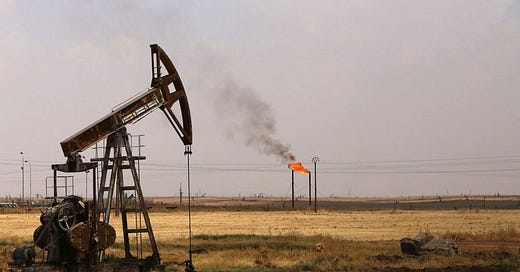50 years ago, a war in the Middle East led, within weeks, to the imposition by the Arab Gulf States of an embargo on exports to Israel’s allies including the UK, Japan, the Netherlands and the USA. Although the embargo lasted for less than six months the result was a quadrupling of prices provoking a surge in inflation and a deep recession. The structure of the energy industry was also affected. Power had shifted from the oil majors who for decades had controlled “concessions” in the producing states.
By the end of the decade tens of billions of barrels of oil reserves had been “expropriated” and put under the control of state owned companies. Energy security became part of the political vocabulary in Europe and the United States along with numerous but usually futile calls for “energy independence”.
Half a century on a new and bitter war between Israel and Hamas threatens to spread across the region with the possibility that oil (and now gas) might once again be used as tools in the conflict.
For the moment the Gaza war has not created a surge in prices and the general consensus is that the war, however ugly, is not about oil and gas. Prices for both remain below the levels they reached in the summer of 2022. For many commentators the lesson of the war in Ukraine is that while cuts in supply are disruptive the global market is flexible enough to manage. If Europe can cope with the loss of Russian gas by finding alternative supplies, as they did last winter, why should we be concerned with a conflict between two opponents neither of whom are energy exporters?
In 1973, despite warning signs through the previous decade, a complacent belief prevailed that supplies for the world’s major importing regions would never be jeopardised for political reasons. Europe and the United States had allowed oil imports to grow and regarded the Gulf States along with Iran as relatively passive client states tied into the major powers through military links and historic diplomatic relationships. The embargo came as a shock.
The question now is whether a new Arab Israeli conflict could produce another shock – destabilising the energy market and the global economy.
The context of the energy sector has shifted materially since 1973 but the gradual changes have not eliminated the risks associated with the dependence of the global economy on traded supplies of commodities which remain absolutely essential to its ability to function.
As the war in Gaza proceeds, the outcome for the energy market remains uncertain with a range of possible consequences. At one end of the scale the impact could be minimal – resources could keep flowing and the world economy would be unaffected. Alternatively, the impact could be profoundly destructive with inflationary rises in energy and other commodity prices.
Keep reading with a 7-day free trial
Subscribe to Comment is Freed to keep reading this post and get 7 days of free access to the full post archives.





